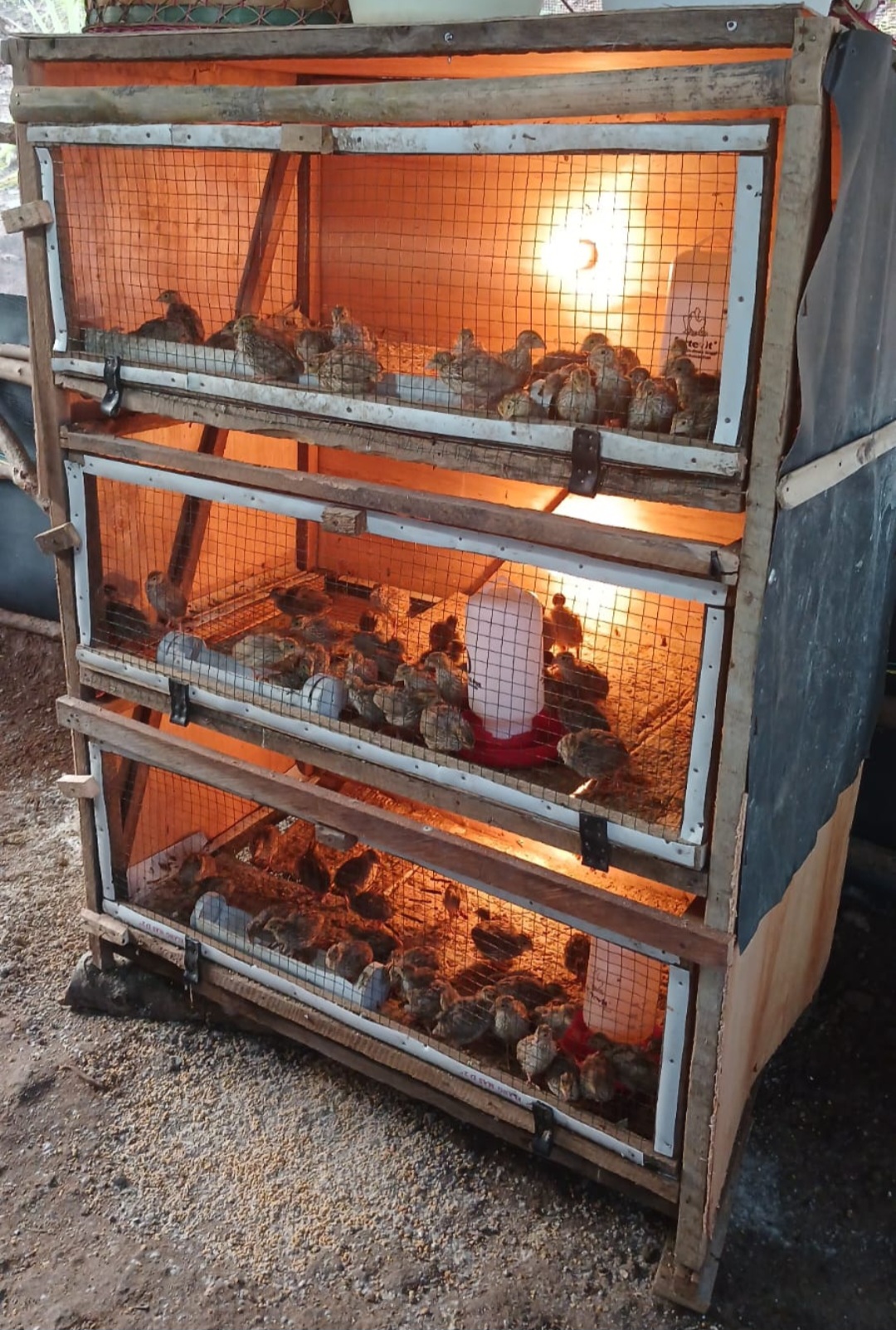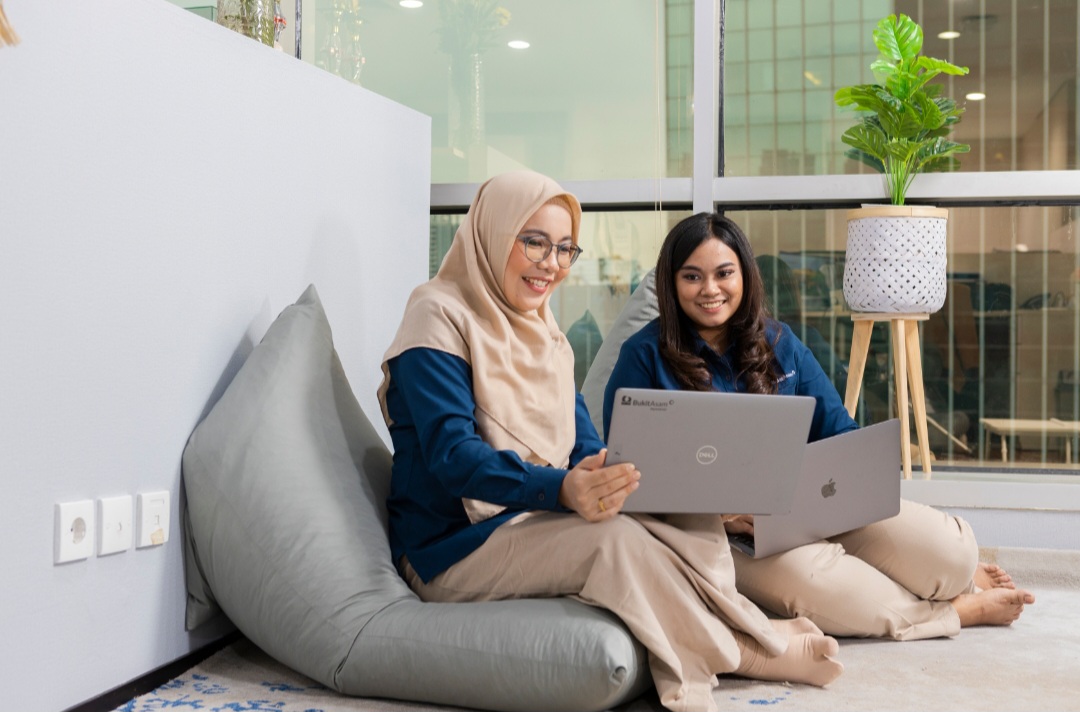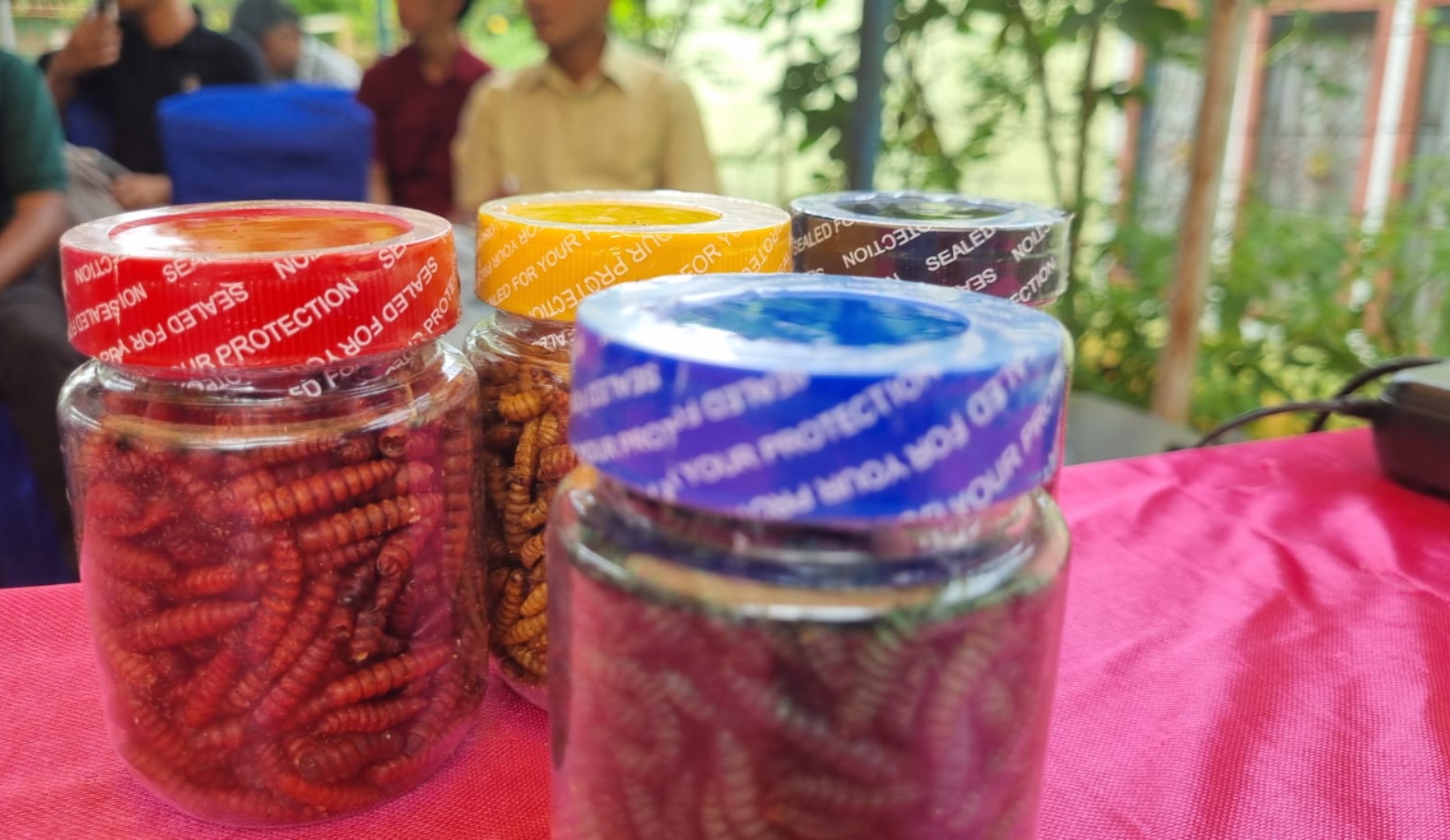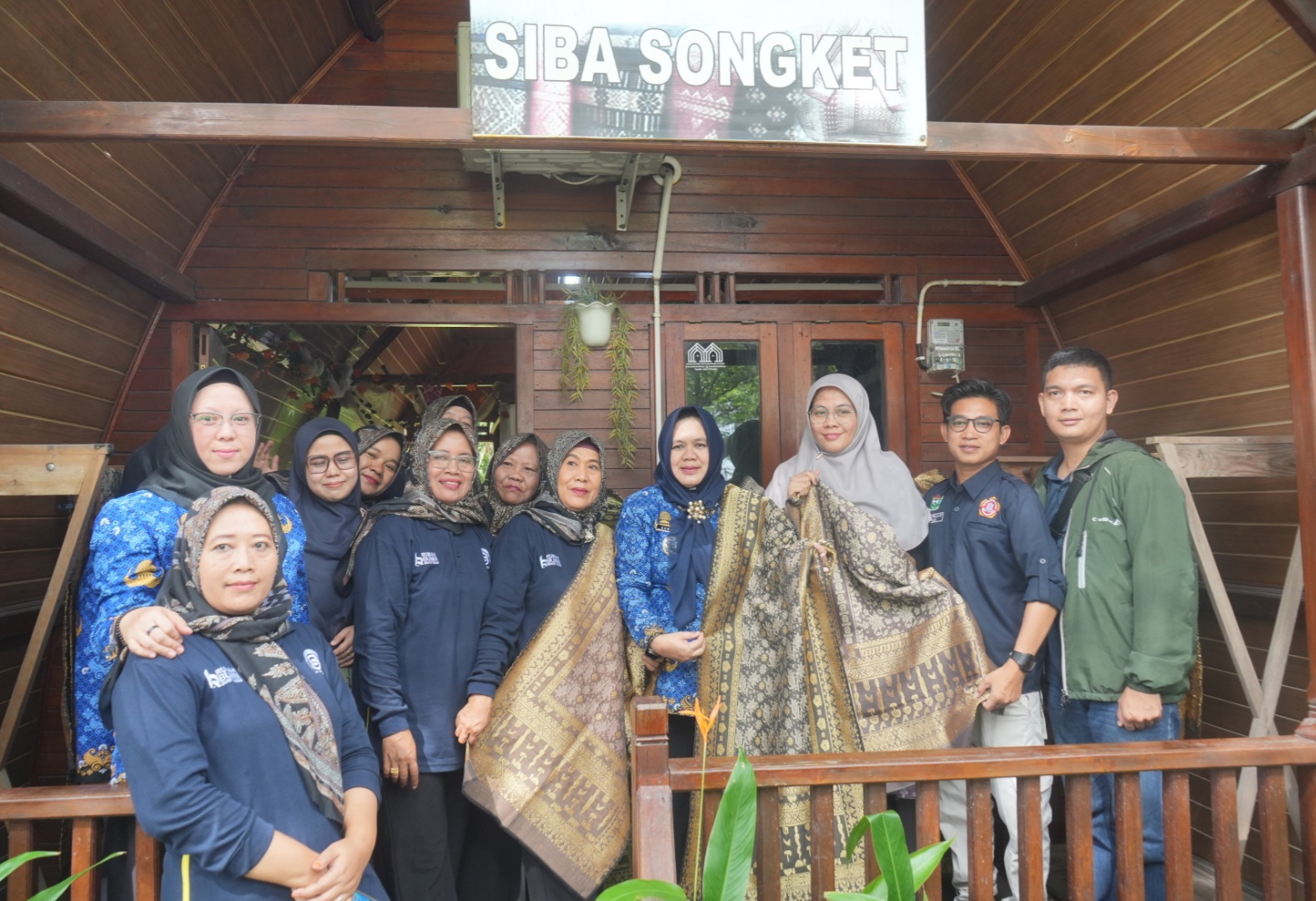 Tonidi, a resident of Seleman Village, has started a quail farming business with 10 friends. With support from PT Bukit Asam Tbk (PTBA), he established the Bangsal Pematang Group in April 2024.
Tonidi, a resident of Seleman Village, has started a quail farming business with 10 friends. With support from PT Bukit Asam Tbk (PTBA), he established the Bangsal Pematang Group in April 2024.Tonidi previously worked as a welder in an illegal mining operation (PETI) near Seleman Village, Tanjung Agung District, Muara Enim. However, the job left him feeling uneasy. Constant anxiety over potential raids and the high risk of accidents weighed heavily on him.
"Previously we worked in PETI. But then we realized that we had to leave and find a better way to make a living," said Tonidi.
The response was positive—PTBA was present to give support by providing training, initial capital, quails for farming, and bird feed.
"So far, we have received support including 3,000 laying-ready quail broodstock, cages, feed, an automated drinking system, training, and even assistance for a new renewable energy source—a mini solar power plant—from Bukit Asam," he said.
Quail eggs are sold locally, including in traditional markets, and are also absorbed by PTBA for its Stunting Reduction Program. The Bangsal Pematang Group produces up to 27 kilograms of quail eggs per day, generating a monthly turnover of around IDR 30 million.
Quail droppings also hold economic value, as they can be processed into fertilizer. The Bangsal Pematang Group supplies these droppings to fellow PTBA partners, including the Bukit Asam Industrial Center (SIBA) Nursery, which specializes in plant cultivation.
Dedy Saptaria Rosa, VP of Sustainability at PT Bukit Asam Tbk (PTBA), shared that quail farming is part of the company's DESA IMPIAN program, which aims to boost the agricultural economy through innovation and sustainable environmental management.
The DESA IMPIAN program aims to create sustainable employment opportunities for vulnerable groups around the company's operational areas, in line with the government’s Asta Cita, particularly with Point 3 on improving the quality of employment and Point 2 on achieving food self-sufficiency.








